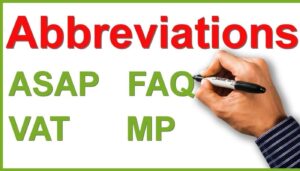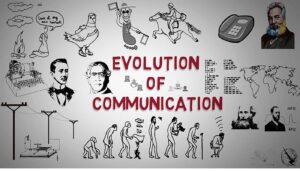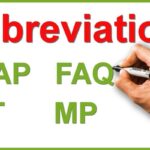In a world filled with a variety of ways to express our thoughts, having a robust vocabulary can make all the difference. Whether you’re writing an email, crafting a story, or simply engaging in conversation, the words you choose shape how others perceive you and the message you’re trying to convey. Adjectives, in particular, play a crucial role by adding color, detail, and depth to our language.
One of the most versatile letters in the alphabet is “I,” offering an array of adjectives to enhance our communication. In this article, we’ll explore 115 adjectives that begin with “I,” offering you a treasure chest of words to elevate your language and help you communicate more precisely and vividly.
Let’s dive into these adjectives, categorized by their specific uses, to see how you can incorporate them into your daily vocabulary.
Descriptive Adjectives for Personality
When it comes to describing people, personality adjectives are essential for bringing characters to life. Here are a few adjectives that start with “I” that can help paint a vivid picture of someone’s nature:
- Impulsive: Acting without thinking, often leading to spontaneous decisions.
- Inquisitive: Eager to learn or curious about the world around them.
- Idealistic: Holding high, often unrealistic, standards and dreams.
- Imaginative: Creative and able to think outside the box.
- Independent: Self-reliant and able to function without external help.
How to Use Them:
- “Her inquisitive nature makes her an excellent investigator.”
- “The impulsive decision to move abroad turned out to be a great adventure.”
These adjectives provide a deeper understanding of someone’s behavior or character, allowing for more engaging and meaningful interactions.
Adjectives for Mood and Feelings
Understanding and describing emotions is key to connecting with others. These adjectives can help you articulate how someone is feeling in a given situation.
- Irritable: Easily annoyed or prone to anger.
- Indifferent: Showing no interest or concern.
- Introspective: Looking inward to examine one’s thoughts and feelings.
- Insecure: Lacking confidence or self-assurance.
- Invigorated: Feeling refreshed, revitalized, or full of energy.
How to Use Them:
- “He felt invigorated after a long hike in the mountains.”
- “Her insecure remarks revealed how little confidence she had in her abilities.”
Using mood adjectives helps express the emotional state of a person or situation, enhancing the relatability of your narrative.
Adjectives for Physical Characteristics
Physical descriptions are often essential when creating a visual image, and these “I”-starting adjectives are perfect for this purpose.
- Imposing: Commanding attention through size or appearance.
- Illustrious: Famous and respected, often in relation to achievements or status.
- Inelegant: Lacking grace or refinement.
- Intact: Unbroken or undamaged; remaining whole.
- Inflexible: Not able to bend or be adjusted; rigid.
How to Use Them:
- “The imposing building stood tall against the skyline.”
- “Her illustrious career in medicine has inspired many.”
These adjectives are particularly useful when painting a detailed image of someone’s appearance or surroundings.
Adjectives for Quality or Condition
Quality adjectives allow us to evaluate or assess something, whether it’s an object, a service, or even an abstract concept. The following “I”-adjectives help articulate quality or condition effectively:
- Incredible: So extraordinary it defies belief.
- Indispensable: Absolutely necessary; vital.
- Inferior: Below standard; of lesser quality.
- Intolerable: Not able to be endured or accepted.
- Inconsistent: Not staying the same throughout; lacking harmony.
How to Use Them:
- “The view from the top of the mountain was incredible.”
- “The service at the restaurant was intolerable, making our dining experience unpleasant.”
These adjectives offer a rich vocabulary for comparing, contrasting, and assessing the world around us.
Adjectives for Situations and Environments
In various contexts, describing situations or environments can help create a clearer understanding of circumstances. The following adjectives help set the scene for different types of settings:
- Inconvenient: Causing difficulty or discomfort.
- Intense: Extreme in strength or degree.
- Irrelevant: Not related or pertinent to the matter at hand.
- Isolated: Separated from others; remote.
- Imperfect: Not flawless; containing defects or flaws.
How to Use Them:
- “The sudden rainstorm was inconvenient, but we made the best of it.”
- “The intense pressure of the job led to burnout.”
These adjectives can enhance your descriptions of situations, providing better clarity and setting the tone for your message.
Adjectives for Personality Traits
These adjectives can be used to describe a person’s character, behavior, and overall demeanor. Whether for storytelling or giving feedback, these words add depth to your descriptions.
- Inconsiderate: Lacking concern for others’ feelings or needs.
- Inflexible: Unwilling to adapt or change.
- Indignant: Feeling anger or annoyance at something perceived as unfair.
- Impolite: Rude or disrespectful in manner.
- Innocent: Free from guilt or moral wrongdoing; naïve.
- Inspiring: Having the ability to motivate or encourage others.
- Influential: Having the power to affect others’ actions, decisions, or thoughts.
- Irreverent: Showing a lack of respect for authority or tradition.
- Idealistic: Believing in or pursuing ideals, often unrealistically.
- Intolerant: Not accepting of views, behaviors, or people that differ from one’s own.
How to Use Them:
- “Her inspiring speech moved the entire crowd.”
- “He was indignant when his work was criticized unfairly.”
These adjectives are great for adding nuance to descriptions of people’s personalities, whether you are writing fiction or discussing someone in a meeting.
Adjectives for Emotions and Feelings
Feelings and moods shape much of human behavior, and these adjectives help describe both intense and subtle emotional states.

- Irritable: Easily angered or annoyed.
- Introspective: Given to deep thought about one’s feelings or motives.
- Insecure: Lacking confidence or certainty about oneself.
- Indifferent: Showing a lack of interest or concern.
- Invincible: Unable to be defeated or harmed.
- Inquisitive: Eager to learn, often to the point of curiosity or prying.
- Impatient: Lacking patience or tolerance for delays.
- Intense: Strong in feeling or force.
- Inward: Focused on internal thoughts or feelings.
- Impassioned: Filled with strong emotion or enthusiasm.
How to Use Them:
- “Her introspective nature helped her understand her emotions better.”
- “After a long day at work, he felt irritable and tired.”
Using these adjectives, you can describe both fleeting emotions and lasting states of mind.
Adjectives for Appearance and Condition
The following adjectives help convey physical traits and conditions, from the state of objects to the appearance of people and places.
- Impressive: Having a strong effect or making a significant impact.
- Incredible: Too extraordinary to be believed or surpassed.
- Intact: Not damaged or altered in any way.
- Irregular: Not conforming to the usual pattern or standard.
- Identifiable: Able to be recognized or distinguished.
- Ineffective: Not producing the desired result or outcome.
- Illogical: Lacking reasoning or clear thought.
- Inadequate: Lacking the necessary qualities or quantities.
- Indistinguishable: Unable to be distinguished or told apart.
- Immense: Extremely large in size or degree.
How to Use Them:
- “The immense crowd at the concert cheered wildly.”
- “The broken glass was now indistinguishable from the rest of the rubble.”
These adjectives allow you to describe not only physical traits but also the quality and condition of things, from a building to a painting or even an idea.
Adjectives for Quality and Evaluation
When you need to assess the quality or worth of something, these adjectives will be incredibly useful.
- Indispensable: Absolutely necessary or essential.
- Inferior: Below standard; of lesser quality.
- Inefficient: Not achieving maximum productivity or performance.
- Irrelevant: Not related or pertinent to the subject at hand.
- Intolerable: Too unpleasant or difficult to bear.
- Inadequate: Lacking in quantity or quality to meet a requirement.
- Insufficient: Not enough to meet the demand or need.
- Incredible: Extremely good or impressive.
- Imperfect: Containing flaws or defects.
- Inauthentic: Not genuine; fake or insincere.
How to Use Them:
- “The indispensable role of technology in education cannot be overstated.”
- “The inefficient use of resources led to delays in the project.”
These adjectives will help you make informed judgments about products, services, or situations.
Adjectives for Situations and Environments
In describing different situations, events, or environments, the following adjectives provide vivid imagery and depth.
- Isolated: Separated from others; alone.
- Inaccessible: Not able to be reached or entered.
- Inhospitable: Unfriendly or unwelcoming to people.
- Inconvenient: Causing discomfort or difficulty.
- Immense: Vast or enormous, often describing spaces.
- Imposing: Grand or impressive in appearance or stature.
- Instinctive: Based on innate behavior rather than learned actions.
- Invasive: Intrusive or harmful, especially in reference to nature or unwanted attention.
- Irrational: Not based on reason or logic.
- Impromptu: Done without preparation; spontaneous.
How to Use Them:
- “The hiking trail led us through isolated forests.”
- “An impromptu decision to visit the beach turned into a weekend getaway.”
These adjectives help provide the context in which events or situations take place, whether describing an environment or a spontaneous occurrence.
Adjectives for Actions and Behaviors
Describing actions or behaviors effectively requires precise vocabulary. Here are adjectives that help express how things are done or how someone behaves.

- Incredible: Impossible to believe because it’s so remarkable.
- Inconsistent: Lacking uniformity or reliability.
- Inadvertent: Not intentional; accidental.
- Intolerant: Unable or unwilling to accept views, behaviors, or people different from one’s own.
- Irreversible: Impossible to reverse or undo.
- Indefatigable: Unable to be tired out; tireless.
- Insistent: Demanding or persistent.
- Immature: Not fully developed or grown; childish.
- Incompetent: Lacking ability or skill.
- Irreproachable: Blameless or flawless in behavior.
How to Use Them:
- “Her inconsistent attendance at meetings caused frustration.”
- “The indefatigable worker never took a break until the job was complete.”
These adjectives will enhance your ability to describe behavior, both in a positive and negative light.
Adjectives for Describing People
Understanding and describing people’s characteristics is essential for both interpersonal communication and storytelling. Here are a few adjectives that will help you add variety when describing people’s traits.
- Indecisive: Unable to make decisions easily.
- Inspiring: Having the ability to influence or motivate others positively.
- Indifferent: Lacking interest or concern for something or someone.
- Inflexible: Unable or unwilling to change or adapt.
- Impressive: Making a strong impact due to qualities like skill, talent, or appearance.
- Immature: Displaying a lack of maturity or sophistication.
- Inconsiderate: Showing a lack of thought for others’ feelings or needs.
- Idealistic: Having high ideals or unrealistic expectations.
- Intellectual: Relating to the intellect or someone who values reasoning and thoughtfulness.
- Inventive: Creative and resourceful, often coming up with new ideas or solutions.
How to Use Them:
- “She was inspiring, always pushing her friends to pursue their dreams.”
- “His indecisive behavior frustrated everyone around him.”
Adjectives for Feelings and Emotions
Emotions and feelings are a key part of human interactions, and these adjectives can help you express complex states of mind.
- Insecure: Lacking confidence or self-assurance.
- Impatient: Unable to tolerate delays or inefficiencies.
- Indignant: Feeling anger or resentment due to something unjust.
- Irritable: Easily annoyed or angered.
- Isolated: Experiencing loneliness or detachment.
- Introspective: Reflective or self-examining, often about one’s emotions.
- Inconsolable: Too upset to be comforted.
- Invigorated: Filled with energy or renewed strength.
- Inferior: Feeling of lesser worth or quality.
- Intense: Strong, deeply felt emotions, often overwhelming.
How to Use Them:
- “She felt insecure about presenting in front of a large crowd.”
- “After a long walk in nature, I felt invigorated and refreshed.”
Adjectives for Quality and Condition
These adjectives are useful for assessing the quality or state of something, whether it be an object, situation, or service.

- Inadequate: Not enough to meet a particular requirement or standard.
- Immense: Extremely large or vast in size, degree, or extent.
- Illogical: Lacking clear or sound reasoning.
- Ineffective: Not producing the desired results or outcomes.
- Indispensable: Absolutely necessary, cannot do without.
- Incredible: So extraordinary that it is hard to believe or imagine.
- Inferior: Substandard or lower in quality compared to others.
- Irrelevant: Not connected to the subject at hand.
- Imperfect: Containing flaws, errors, or defects.
- Irreproachable: Blameless, above reproach; flawless.
How to Use Them:
- “The team worked hard, but the result was ineffective in addressing the issue.”
- “Her performance was irreproachable, earning her high praise.”
Adjectives for Appearance and Aesthetics
These adjectives are particularly helpful when describing the look or visual appeal of people, objects, or environments.
- Imposing: Grand, impressive, and commanding attention.
- Irresistible: Too attractive or appealing to resist.
- Illustrious: Famous or well-known for achievements or qualities.
- Indistinguishable: Unable to be identified or differentiated from something else.
- Intact: Not altered, damaged, or broken; whole and undamaged.
- Incomparable: So outstanding or unique that nothing else can compare.
- Incredible: Strikingly impressive or beautiful.
- Immense: Enormous in size or magnitude.
- Inconspicuous: Not easily seen or noticed.
- Irrelevant: Not important or related to the current situation.
How to Use Them:
- “The illustrious painting from the Renaissance era is now housed in the museum.”
- “Her irresistible charm made her a favorite at every party.”
Adjectives for Describing Situations
When trying to capture the essence of a particular situation or event, these adjectives come in handy for crafting an accurate portrayal.
- Improbable: Not likely to happen or be true.
- Impossible: Not able to occur or be achieved.
- Impromptu: Done without preparation, spontaneous.
- Irregular: Not following the usual pattern or structure.
- Incredible: Too extraordinary to believe; beyond imagination.
- Inescapable: Impossible to avoid or escape.
- Insufferable: Unbearable; too unpleasant to tolerate.
- Inconvenient: Not suitable or causing difficulty or discomfort.
- Intolerable: Too harsh or severe to endure.
- Inaccessible: Not able to be reached or entered.
How to Use Them:
- “It was an improbable turn of events that led to their unexpected victory.”
- “The insufferable heat made it impossible to enjoy the afternoon.”
Adjectives for Describing Actions and Behaviors
Understanding how actions are performed or behaviors are exhibited is essential in both writing and everyday conversations. These adjectives help express how things are done.
- Inconsiderate: Not giving thought to the feelings or needs of others.
- Industrious: Hard-working, diligent, and persistent.
- Immature: Lacking maturity; childish.
- Irreversible: Not able to be undone or changed.
- Incompetent: Lacking the necessary skills or ability to perform effectively.
- Irrational: Not based on logic or reason.
- Indefatigable: Tireless, never showing signs of weariness.
- Impatient: Eager for action or change, unable to wait.
- Introspective: Looking inward, often analyzing one’s thoughts and feelings.
- Invasive: Intrusive or harmful, especially in reference to actions or behaviors.
How to Use Them:
- “He remained industrious throughout the project, meeting all deadlines.”
- “Her inconsiderate remarks hurt everyone around her.”
Test Your Knowledge with Fun Quizzes
1. Which of the following adjectives means “not able to make decisions easily”?
- A) Inspiring
- B) Indecisive
- C) Immature
- D) Impressive
Answer:
B) Indecisive
Explanation: “Indecisive” describes someone who is unable to make decisions easily.
2. What does the adjective “irresistible” mean?
- A) Too attractive to resist
- B) Lacking interest or concern
- C) Not following a pattern
- D) Unbearable or difficult to endure
Answer:
A) Too attractive to resist
Explanation: “Irresistible” refers to something or someone too attractive or appealing to avoid.
3. Which of these adjectives describes someone who is “hard-working and persistent”?
- A) Incompetent
- B) Inconsiderate
- C) Industrious
- D) Irrelevant
Answer:
C) Industrious
Explanation: “Industrious” refers to a person who is hardworking and diligent.
4. What does the adjective “imperfect” mean?
- A) Extremely large in size
- B) Containing flaws or defects
- C) Unable to be undone
- D) Easily identified
Answer:
B) Containing flaws or defects
Explanation: “Imperfect” describes something that is not flawless and contains some errors or defects.
5. The adjective “indispensable” means:
- A) Not related to the subject
- B) Not able to be replaced or avoided
- C) Containing flaws
- D) Too extraordinary to believe
Answer:
B) Not able to be replaced or avoided
Explanation: “Indispensable” refers to something or someone absolutely necessary and irreplaceable.
6. Which of the following adjectives describes a situation that is “too extraordinary to believe”?
- A) Impossible
- B) Incredible
- C) Inaccessible
- D) Irreversible
Answer:
B) Incredible
Explanation: “Incredible” refers to something so remarkable or extraordinary that it seems difficult to believe.
7. What does the adjective “imposing” describe?
- A) Too difficult to bear
- B) Extremely large in size
- C) Grand or impressive in appearance
- D) Hard to understand or follow
Answer:
C) Grand or impressive in appearance
Explanation: “Imposing” is used to describe something or someone that commands attention due to their size or appearance.
8. Which adjective means “too upset to be comforted”?
- A) Invincible
- B) Irrelevant
- C) Inconsolable
- D) Insufferable
Answer:
C) Inconsolable
Explanation: “Inconsolable” describes a state of being so distressed that no comfort can help.
9. The word “irrational” is used to describe:
- A) Someone who follows reason
- B) Someone who is difficult to understand
- C) Behavior that is not based on logic or reason
- D) A situation that is too difficult to escape
Answer:
C) Behavior that is not based on logic or reason
Explanation: “Irrational” describes behavior that lacks reasoning or logic.
10. Which adjective refers to something that is “unable to be changed or reversed”?
- A) Irrelevant
- B) Impressive
- C) Irreversible
- D) Inadequate
Answer:
C) Irreversible
Explanation: “Irreversible” means something that cannot be undone or changed.
11. What is the meaning of the adjective “impatient”?
- A) Uninterested in waiting or delays
- B) Lacking in originality
- C) Full of thought and reflection
- D) Able to adapt easily
Answer:
A) Uninterested in waiting or delays
Explanation: “Impatient” describes a person who cannot tolerate delays or slow progress.
12. Which of these adjectives describes a situation that is “unbearable” or “too harsh to endure”?
- A) Introspective
- B) Improbable
- C) Intolerable
- D) Inaccessible
Answer:
C) Intolerable
Explanation: “Intolerable” describes something so unpleasant or harsh that it cannot be tolerated.
13. The adjective “introspective” refers to someone who:
- A) Is focused on external circumstances
- B) Enjoys analyzing others
- C) Thinks deeply about their own thoughts and feelings
- D) Avoids any form of self-reflection
Answer:
C) Thinks deeply about their own thoughts and feelings
Explanation: “Introspective” refers to a person who reflects on their own internal thoughts and feelings.
14. Which adjective means “having the ability to motivate others”?
- A) Intolerant
- B) Inspiring
- C) Irreproachable
- D) Immature
Answer:
B) Inspiring
Explanation: “Inspiring” describes someone or something that motivates or encourages others.
15. What does the adjective “immense” describe?
- A) A feeling of discomfort
- B) A small and compact object
- C) Something that is extremely large or vast
- D) A lack of detail or clarity
Answer:
C) Something that is extremely large or vast
Explanation: “Immense” describes something of great size or magnitude.
16. Which adjective means “not able to be reached or entered”?
- A) Inconvenient
- B) Irrelevant
- C) Inaccessible
- D) Improbable
Answer:
C) Inaccessible
Explanation: “Inaccessible” means something that is unreachable or difficult to enter.
17. The adjective “insufferable” describes a situation that is:
- A) Easily understood
- B) Extremely pleasant
- C) Unbearably difficult to endure
- D) Perfectly balanced
Answer:
C) Unbearably difficult to endure
Explanation: “Insufferable” refers to something so unpleasant or intolerable that it cannot be endured.
18. What does the adjective “intellectual” refer to?
- A) Someone who values physical appearance
- B) Someone who is focused on learning and reasoning
- C) Someone who avoids thinking deeply
- D) Someone who has no interest in learning
Answer:
B) Someone who is focused on learning and reasoning
Explanation: “Intellectual” refers to someone who values knowledge, reasoning, and thoughtfulness.
19. The adjective “irrelevant” means:
- A) Extremely important
- B) Not connected to the subject or matter at hand
- C) Absolutely necessary
- D) Not able to be avoided
Answer:
B) Not connected to the subject or matter at hand
Explanation: “Irrelevant” means something that has no relation to the topic being discussed.
20. Which of the following adjectives means “free from guilt or wrongdoing”?
- A) Irreproachable
- B) Indecisive
- C) Inadequate
- D) Immature
Answer:
A) Irreproachable
Explanation: “Irreproachable” refers to someone who is without fault or blame, free from any criticism.
21. Which adjective describes “someone who is often unwilling to adapt”?
- A) Inflexible
- B) Inspiring
- C) Imposing
- D) Introspective
Answer:
A) Inflexible
Explanation: “Inflexible” describes someone who resists change or adjustment.
22. The adjective “identifiable” means:
- A) Unable to be recognized
- B) Able to be distinguished or recognized
- C) Irrelevant to the subject at hand
- D) Lacking important characteristics
Answer:
B) Able to be distinguished or recognized
Explanation: “Identifiable” means something or someone that can be recognized or distinguished.
23. What does the adjective “indifferent” mean?
- A) Having a great interest
- B) Lacking interest or concern
- C) Strongly emotional
- D) Deeply reflective
Answer:
B) Lacking interest or concern
Explanation: “Indifferent” refers to a lack of interest or concern about something or someone.
24. Which adjective means “someone who is too quick to become annoyed”?
- A) Irrelevant
- B) Intolerant
- C) Irritable
- D) Impressive
Answer:
C) Irritable
Explanation: “Irritable” refers to someone who gets easily annoyed or frustrated.
25. What is the meaning of the adjective “incredible”?
- A) Too extraordinary to believe
- B) Not impressive at all
- C) Impossible to happen
- D) Unbearable or difficult to endure
Answer:
A) Too extraordinary to believe
Explanation: “Incredible” refers to something so amazing or extraordinary that it seems beyond belief.
26. What does the adjective “indefatigable” mean?
- A) Easily tired out
- B) Energetic and tireless
- C) Unable to make decisions
- D) Lacking any flaws
Answer:
B) Energetic and tireless
Explanation: “Indefatigable” describes someone who does not tire easily, staying energetic and persistent.
Wrapping It Up: The Power of “I”-Adjectives
By adding these 115 adjectives starting with “I” to your vocabulary, you give yourself the tools to describe people, emotions, situations, and physical traits with greater precision. These adjectives can help you communicate more effectively, whether you’re writing a novel, preparing a presentation, or simply chatting with a friend.
Now that you have a diverse range of “I”-starting adjectives, think about the next time you need to express a thought or emotion. Which of these words could elevate your message? By regularly practicing with new adjectives, you’ll soon notice a shift in how vividly you can convey ideas, feelings, and stories.
Take a moment to explore how these adjectives might fit into your personal or professional life. Are you ready to experiment with them? The next conversation or piece of writing is your opportunity to start making your language even more engaging. Happy learning!









